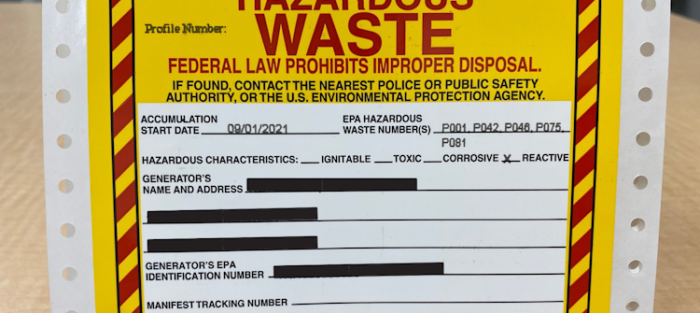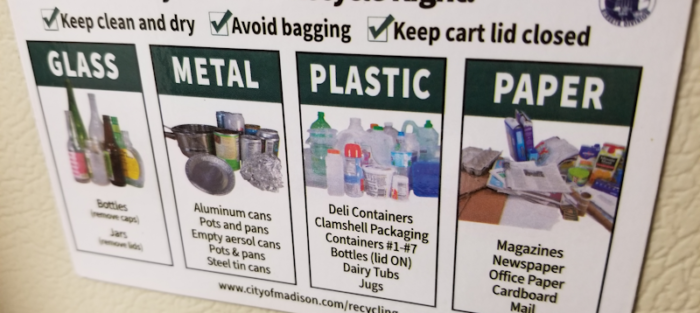Waste management is very important to humans in order to maintain health, extend the life of the earth, eliminate all sorts of pollution, and most importantly it helps us preserve natural resources for future generations.
The state of Alabama’s regulatory system for waste management in Alabama provides that all waste will be managed from cradle to grave in an environmentally responsible manner. These regulations are vital for businesses, government agencies and individuals; non-compliance can lead to fines, penalties and environmental damage
In Alabama, waste management is regulated by a combination of federal and state law, with the primary regulatory body being the Alabama Department of Environmental Management (ADEM), which oversees and regulates solid wastes, recyclables and hazardous wastes.
The ADEM is charged with both implementing and enforcing a variety of federal and state laws related to the management of waste, including but not limited to RCRA, provisions in the Alabama Environmental Management Act (Ala. Code 22-22A-1 et seq.), and Solid Waste and Recycling Management Act (Ala. Code § 22-27).
Fundamental Regulations and Compliance Essentials
Solid Waste Management
Solid Waste in Alabama Solid waste is refuse that includes, but is not limited too, household waste, food scraps from homes and restaurants, paper products such as cardboard boxes and newspapers, plastics (usually bags), grass clippings/other yard debris; etc.
Under the Alabama Solid Waste Disposal Act, certain solid waste must be disposed of only in licensed landfills or transfer stations that comply with environmental performance standards set by municipal and state regulatory agencies.
The ADEM issues the certifications or permits for these landfill operations, which ensure that waste management facilities in Alabama function according to state guidelines related to their design, operation and closure. Leachate control, gas emissions monitoring and reporting, and groundwater protection must be made according to strict schedules. Waste generators, municipalities, businesses and others are required to manage, segregate and report their waste activities.
Recycling and Waste Diversion
Alabama promotes recycling and waste reduction efforts by utilizing the Alabama Recycling Fund along with local government programs. While regions differ as to what gets recycled, the state encourages diversion away from landfills for paper, glass, metal and plastic.
While there is no statewide mandatory recycling program in Alabama, some local governments—mostly large cities such as Birmingham and Montgomery—have curbside recycling programs. It is up to businesses and residents to keep their recyclables separated from trash; if they fail, local governments can issue fines or other penalties.
Hazardous Waste Management
Hazardous waste is any waste that poses a potential threat to human health or the environment because of its chemical, physical, or biological characteristics. Federal regulations beneath the Resource Conservation and Recovery Act (RCRA) manage sights from which hazardous waste is generated.
The Alabama Department of Environmental Management manages the state’s Hazardous Waste Management Program and requires facilities that generate hazardous waste to have the relevant permits for its storage, treatment, and disposal. It also imposes a number of labeling, reporting and record-keeping requirements on businesses. Hazardous waste must be handled correctly because improper handling can lead to soil, water and air being contaminated as well as heavy fines.
Waste from construction and demolition (C&D)
In Alabama, a significant part of the waste stream consists of construction and demolition (C&D) debris (wood, concrete, metal, drywall etc.). This is after the state requires that C&D waste be kept separate from municipal solid waste and end up in licensed C&D landfills or recycling plants.
The Agency for the Development and Enforcement of the Environmental Law promotes recycling these C&D materials, such as concrete and metals to conserve resource from heavily using landfill cite. Special waste disposal reporting requirements also apply for contractors performing large construction projects, and the contractor must properly manage and dispose of all waste resulting from construction.
Disposal of electronic waste (e-waste)
Electronic waste, aka e-waste, is especially tricky since a lot of electronics include toxic materials like lead, mercury, or cadmium. A
Alabama, as with some other states, does not have much in the way of comprehensive e-waste recycling law, but Alabama at least did do away with many kinds of e-waste in a fashion that requires those types of devices to be recycled and disposed properly. But ADEM and local governments frequently conduct collection events or operate drop-off sites for unwanted electronics to be recycled, not land filled.
Penalties and Enforcement
ADEM has the power to conduct inspections, levy fines and issue citations for violations of waste management regulations in Alabama. Violations of solid waste, recycling or hazardous waste rules may lead to civil penalties, orders for corrective action and possible criminal prosecution in egregious cases.
Businesses that do not handle hazardous waste properly or exceed landfill permit limits, for instance, can be slapped with large fines. Through regular inspections and compliance reporting requirements, ADEM assures the state rules for waste management are followed.
Alabama waste management regulations protect the environment and public health. A string of obligations aimed at businesses, municipalities, dumpster rental services and individuals to not harm the environment comes into effect, and failing to do so will lead to penalties.
Alabama’s regulatory framework encompasses everything from solid waste disposal to hazardous waste management and recycling, providing a system of safeguards that help ensure waste does not impact the environment, or that it is handled in as “green” a way as possible.
All matters of businesses, residents, and waste management facilities within the state of Alabama need to stay aware with their responsibilities that lay upon them via state law in addition to cooperating local war authorities for an efficient approach on how we can manage wastes responsibly. This would allow Alabama to further progress toward a future with cleaner air, water and land, and more sustainable prospects.
Read More











